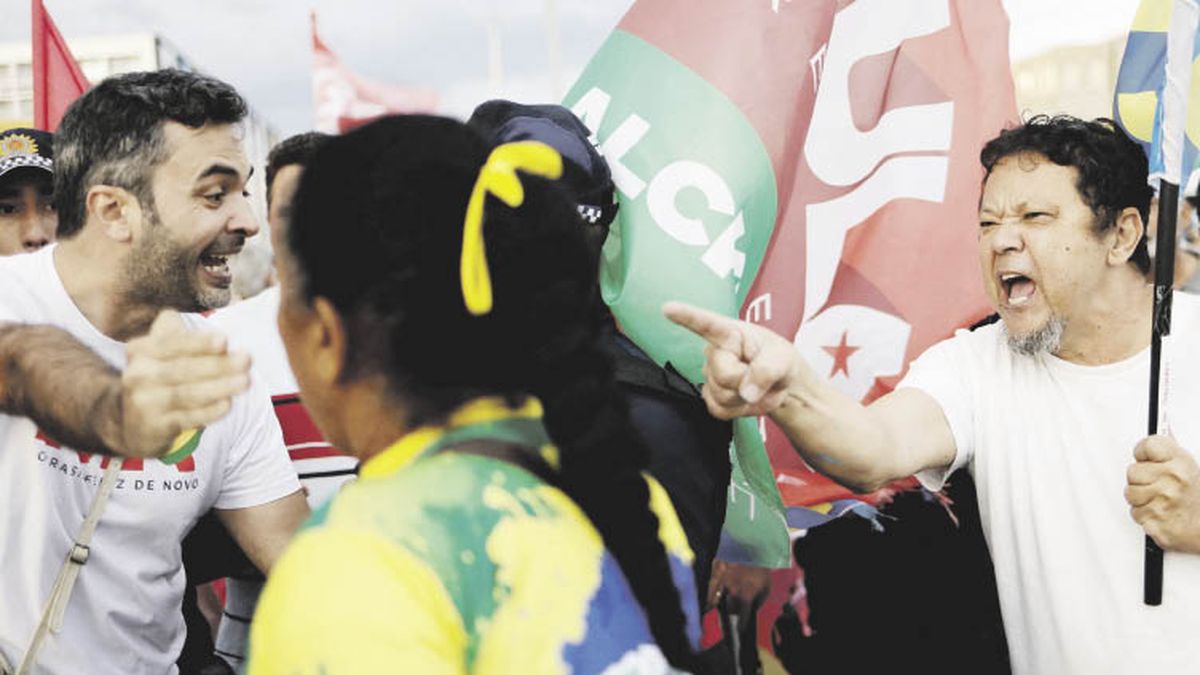In addition to who will occupy the Planalto Palace for four years from next January 1, around 156 million Brazilians will be able to vote in the ballots of twelve states that were not defined in the first round of last Sunday, January 2, including the most populous and richest in the country, São Paulo, and another important electoral college such as Bahía.
Ambient
After the scrutiny of the first turn, Lula da Silva –remembered for his social policies, which practically extinguished extreme poverty in an internationally favorable context– emerged as the favorite, despite the fact that the advantage he obtained was less than anticipated by polls that failed. severely to predict the electoral strength of the right. He finally achieved 48.43% of the valid votes – that is, excluding blank and invalid votes – against 43.2% for Bolsonaro. It was, respectively, 57.2 and 51 million votes.
Indeed, the leader of the PT only needed to capture something like a point and a half more, which he tried to ensure with the support of the groups that accompanied Simone Tebet and Ciro Gomes, who finished in third and fourth place in the first turn, which added 9% of the votes. Still, it was Bolsonaro who came back the fastest, adding an unexpected dose of uncertainty to the race.
Lula da Silva is, as has been shown, the most popular leader in Brazil, but the corruption record of his governments – proven in various court cases, which even allowed the State to recover money paid as bribes – is a burden for him . Convicted in three instances of corruption and finally exonerated when the political persecution to which Judge Sergio Moro and the prosecutors of the “Lava Jato” (car wash) operation subjected him was verified, said records are worth a rejection rate that is also high. . Indeed, according to Paraná Research, 48.6% said they would never vote for him, just two tenths below those who would never vote for Bolsonaro. Brazil is divided into two irreconcilable halves.
If corruption in the Lulista governments –2003-2010– is a dominant theme in the campaign, so are numerous aspects of Bolsonarism. Among these stand out his lack of apprehension during the pandemic -which made Brazil one of the countries with the worst death record-, his rejection of covid-19 prevention measures, his refusal to buy vaccines if they came from China, his homophobic and misogynistic rhetoric, its promotion of the purchase of weapons and its policies of neglect of the environment.
Concern
Bolsonaro also denounced without evidence an alleged fraud against him through the use of electronic ballot boxes, which have been used since the mid-1990s without ever having been reported. Given this, he charged again and again against the Superior Electoral Court (TSE) and the Federal Supreme Court (STF, supreme court), threatened to ignore a defeat and even promoted an audit of the scrutiny by the Armed Forces. During his administration, he privileged the latter, by promoting some 6,000 of its members to positions of all kinds – which included ministries and even the vice presidency – and by politicizing the barracks. It is feared that a tight result in favor of Lula da Silva will be unknown to Bolsonarism and that it will launch armed supporters and even some military sectors into the streets, following Donald Trump’s script that culminated in January of last year with the tragic capitol capitol. The United States Government has publicly expressed concern about this possibility.
regional impact
Latin America waits expectantly to find out if Lula da Silva’s left –even one diluted by the composition of his alliance and that of Congress, in which conservative blocs will predominate– will prolong the progressive cycle inaugurated in Chile and Colombia or if, in truth, Bolsonaro will be strong enough to win re-election.
Also Argentina, which would again find an echo in Brazil to strengthen Mercosur as a customs union against countries and blocs that are reluctant to open up commercially. On the contrary, Bolsonaro has fought – with greater intensity in the first part of his mandate – for a radical opening of the block that would leave the industrial sectors of Brazil and Argentina at the mercy of much more efficient competitors.
Alberto Fernández would also find in the PT an ally in his goal of taking the country to the BRICS group -Brazil, Russia, India, China and South Africa-, in which he could find credit and investments, something that the United States observes with suspicion due to their confrontation with Beijing.
Source: Ambito
David William is a talented author who has made a name for himself in the world of writing. He is a professional author who writes on a wide range of topics, from general interest to opinion news. David is currently working as a writer at 24 hours worlds where he brings his unique perspective and in-depth research to his articles, making them both informative and engaging.




